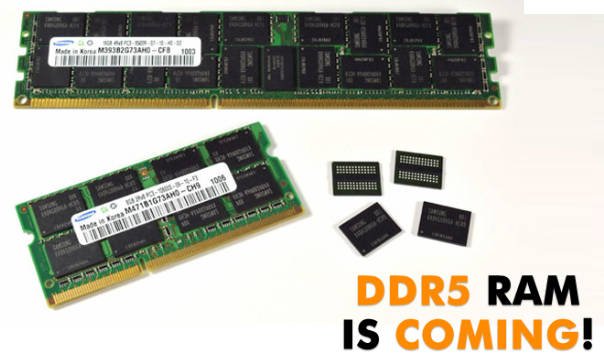
Let’s be honest – coding, programming, and software engineering, in general, are driving digitalization around the world. Those easily accessible mobile apps for customers, the comprehensive software programs designed to streamline various business operations, and full-fledged websites that support the objectives of a wide variety of institutions are all a result of someone writing the code for them.
If you’re a beginner, the simplest way to understand coding is that it is the language computers understand. It is the medium of communication that tells programs about the actions they need to execute after certain commands.
Coders can be known by a variety of different names, but either way, they are in high demand across the world. From freelancing to stable long-term commitments, individuals and firms are going all-out to find the best programming talent out there to gain a competitive edge in the digital age.
So, if you are looking to learn about coding and become an expert in it, here are a few tips that can help you along the way:
1. Start with online resources
When you’re exploring opportunities of getting into coding, the best place to start is online. No one actually starts as an expert. Every professional begins somewhere, and when you are trying to do it right, this “somewhere” has to be coding basics.
As an individual just venturing into this field, instantly enrolling in a degree program or comprehensive course may not get you the desired results. You will need to understand the intricacies of various elements that form the foundation of coding, like the common languages that include JavaScript, CSS, HTML, etc. You can easily find all the basic information you need online, including different versions of the same explanation so that you can choose the one you can comprehend.
Once you finish brushing up on the basics, only then should you start investing in more professional courses. It is like learning any language. You need to learn and understand how to use the alphabet before you can begin forming words, then sentences, and eventually write entire communication pieces. Coding is just a more advanced version of this since the language in question is that of computer programs.
2. Use a coding bootcamp to support your basic learning
A bootcamp is a concentrated curriculum to impart certain in-demand skills in a fast and time-efficient manner. If you want to get up to speed on coding basics and the right way to build a solid foundation in the subject, a bootcamp is the ideal way to do that. The benefit of a bootcamp over any other course is that it may be rapid-paced, but it emphasizes hands-on experiences and practical skills instead of just theoretical learning.
A bootcamp can teach you various skills, including C#, HTML, Java, CSS, Python, JavaScript, MongoDB, jQuery, and MySQL. Here, you can take virtual sessions at your convenience, so it can take three or six months. Also, since bootcamps are self-study programs, you spend as much time as you want to practice a certain topic till you get the hang of it.
When looking for employment opportunities, a bootcamp is just as effective as any other professional course. According to a recent survey, a little more than 39% of hiring managers said bootcamp graduates were just as qualified as other candidates who had completed their education from a conventional institution.
3. Determine what your focus of learning is
You might wish to consider the type of programmer you want to be as you increase your coding knowledge. If you are clear about how you want to use your coding talents professionally, you can look for projects, internships, and courses that interest you. This doesn’t mean you should choose a specialty; if you’re unsure, a more generalized course can help you establish what you hope to accomplish.
There are three primary tracks you can choose as a coder. The first is a front-end developer. These professionals are responsible for designing and creating the visuals and the structure of a website concerning the user.
The second is a back-end developer who, as opposed to front-end developers, is responsible for most elements of a site that concern the server side. These professionals have a considerable responsibility toward maintaining the back-end of applications as well as websites, specifically with respect to their functionality.
Lastly, full-stack developers look after the entire scope of development technology, including both front and back-end of various programs. These professionals have specialized knowledge and skills for handling both these sides of a website, application, or software.
You don’t need to specialize in one particular aspect. Once you get into programming, you may learn to become a full-stack developer, but your area of interest and specialty skills lie in front-end development. Either way, you need to know the path you want to take for your career.
4. Look for practical experience and tech internships
To put some of the programming abilities you learn at a bootcamp into practice, you might want to consider getting a part-time tech internship. Indeed, internships can provide you with helpful job expertise with an employer as well as strong references for your next position. Contributing significantly to a cause you care about will likely add distinct, fruitful duties to your portfolio and build up another favorable reference for potential employers.
5. Practice for yourself
As you start to learn, and even when you’re interning, you must continue to practice for yourself. Coding is a skill that is only enhanced by continuous practice. You may know by now where your interests lie, and it is crucial that you put these skills to the test, even if they are not in a professional capacity. Give yourself projects from time and time, complete them, and have an independent expert in your circle analyze them for strengths and weaknesses.
Conclusion
Learning to code like a pro is no easy task. If you ever get to interact with people who professionally create code for various digital platforms, you’ll learn that programming comes with a distinct set of challenges. This is why it is essential to get the basics before you can practically get into the actual field.


